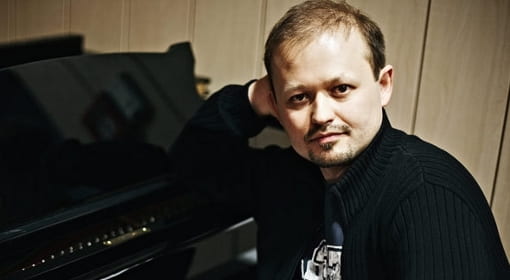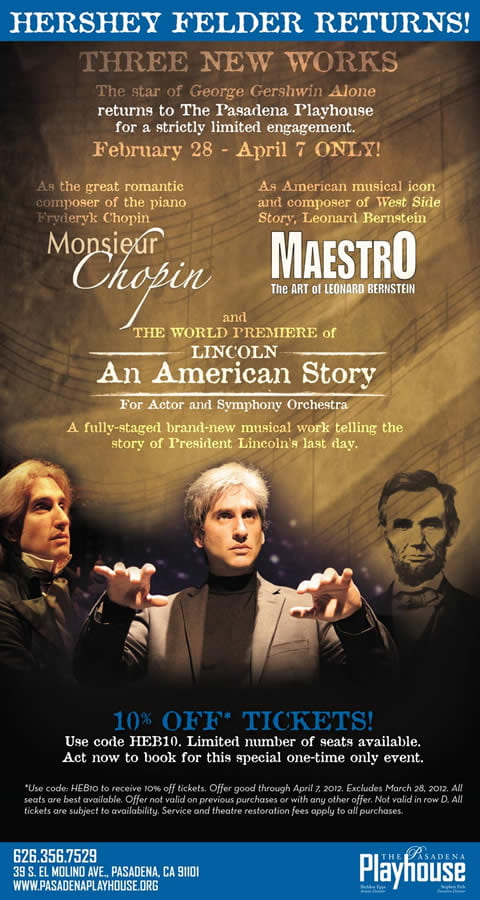Polish Music Newsletter Vol. 18, no. 2
Obituary
Wisława Szymborska
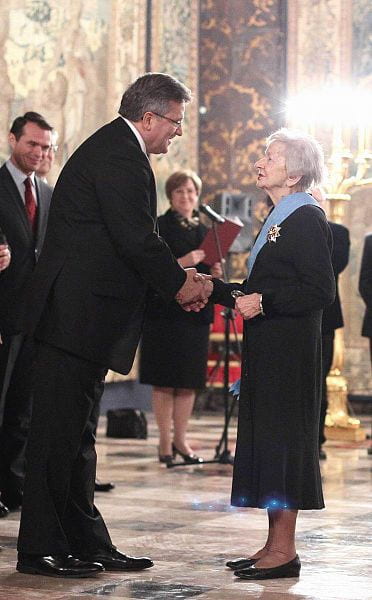 Nothing can ever happen twice
Nothing can ever happen twice
in consequence, the sorry fact is
that we arrive here improvised
and leave without the chance to practice.
An excerpt from “Nic dwa razy się nie zdarza” by Wisława Szymborska
The world’s newspapers have been filled with tributes to Wisława Szymborska (1923-2012), the Nobel Prize-winning poet who “died peacefully in her sleep” on February 1 at the age of 88, according to her assistant Michał Rusinek (PAP). Despite a relatively small published output, Szymborska’s quirky yet movingly direct poetry has spoken to the hearts of many Poles since she had published her first poem in the daily Dziennik Polski in 1945. Private and contemplative by nature, she spent her life in Kraków working quietly as a poignant commentator on the human condition—one whom President Bronisław Komorowski called Poland’s “guardian spirit.”
The reclusive poet was thrust briefly into the international limelight when she became the laureate of the Nobel Prize for Literature in 1996; however her body of work remained known only to a limited audience outside her native country. This may be due to the very linguistic acrobatics that make Szymborska’s poems so uniquely appealing. According to the New York Times in consultation with Literature professor and Szymborska translator, Dr. Clare Cavanagh, “her poems were clear in topic and language, but her playfulness and tendency to invent words made her work hard to translate.” Despite the challenges, however, Dr. Cavanaugh was successful in bringing Szymborska’s poetry into the English speaking world. As PMC Director Marek Zebrowski commented in his 1998 review of the Cavanaugh-Baranczak translation of Szymborska’s Poems New and Collected 1957-1997, “Szymborska’s poetic voice and spirit have reasserted themselves in English with an astonishing and idiomatic vitality.” (The Boston Book Review)
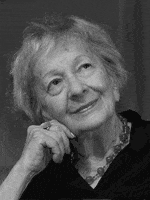 According to the Associated Press, “the Nobel award committee called her the ‘Mozart of poetry,’ a woman who mixed the elegance of language with ‘the fury of Beethoven’ and tackled serious subjects with humor.” The committee’s reference to two of history’s greatest composers hints not only at the sometimes dichotomous nature of her artistic voice, but also the influence that Szymborska’s poetry has had upon the musical world, both in Poland and abroad.
According to the Associated Press, “the Nobel award committee called her the ‘Mozart of poetry,’ a woman who mixed the elegance of language with ‘the fury of Beethoven’ and tackled serious subjects with humor.” The committee’s reference to two of history’s greatest composers hints not only at the sometimes dichotomous nature of her artistic voice, but also the influence that Szymborska’s poetry has had upon the musical world, both in Poland and abroad.
On the day that Szymborska was buried (Feb. 9, 2012), the well-known tune of Andrzej Mundkowski’s setting of her poem “Nic dwa razy się nie zdarza” [Nothing Can Ever Happen Twice, or “Nothing Twice”] rang out from the tower of St. Mary’s Basilica into the busy central square of old town Kraków. According to a PAP source, this was the first time ever that the Basilica’s trumpeter had played something other than the famous “Hejnał” during his hourly routine, indicating the historical significance of a death Foreign Minister Radek Sikorski called on Twitter an “irreparable loss to Poland’s culture.”
Mundkowski’s 1965 setting of “Nic dwa razy się nie zdarza,” which won him an award from the Minister of Arts and Culture in the same year, was written for and performed by his wife, Łucja Prus. The popularity of the song catapulted Szymborska’s poetry into Poland’s cultural awareness. A cover of this same song became an even greater hit 1994 when it was performed by rock singer Kora with the group Maanam. Mundkowski also wrote a lesser known song to the text of Szymborska’s poem “Jawność” [Disclosure].
 Another celebrated musical setting of Szymborska’s poetry was composed by Zbigniew Preisner, who is best known for his collaborations with one of Poland’s most renowned film directors, Krzysztof Kieślowski. Preisner wrote a haunting baritone ballad to the text of Szymborska’s poem “Miłość od pierwszego wejrzenia” [Love At First Sight] for Rouge (1994), the third film in Kieślowski’s visually stunning trilogy Trois couleurs. In fact, the entire movie is said to have been inspired by this poem. A full version of the song is available on Youtube.com.
Another celebrated musical setting of Szymborska’s poetry was composed by Zbigniew Preisner, who is best known for his collaborations with one of Poland’s most renowned film directors, Krzysztof Kieślowski. Preisner wrote a haunting baritone ballad to the text of Szymborska’s poem “Miłość od pierwszego wejrzenia” [Love At First Sight] for Rouge (1994), the third film in Kieślowski’s visually stunning trilogy Trois couleurs. In fact, the entire movie is said to have been inspired by this poem. A full version of the song is available on Youtube.com.
Krzesimir Dębski, a prolific and popular film composer, has also been inspired by Szymborska’s lines. In 1997, Dębski wrote Muzyka do wierszy Wislawy Szymborskiej [Music to the Verses of Wisława Szymborska], a group of seven songs for soprano, tenor, female choir and orchestra. Although best known for his cinema and television scores, this set of songs is part of Dębski’s impressive repertoire of orchestral music for the concert stage.
In 2010, a four-disc set dedicated to the life and works of Wisława Szymborska was released by Agora SA. The first two discs contain rare recordings of Szymborska reading from two volumes of her poetry, and the fourth disc features the documentary Chwilami życie bywa znośne – przewrotny portret Wisławy Szymborskiej [Sometimes Life is Bearable – A Wicked Portrait of Wisława Szymborska], produced by Katarzyna Kolenda-Zaleska. The third disc is a collection of songs set to Szymborska’s verses—these new and archival arrangements are sung by Hanna Banaszak, Dorota Miśkiewicz, Łucja Prus, Michał Bajor, Stanisław Soyka, Grzegorz Turnau, Maanam and Skaldowie.
Szymborska’s influence has not been confined to musicians in Poland, however, nor to songs for the voice. American composer and USC Thornton School of Music Masters’ degree candidate Elizabeth Ogonek composed her Szymborska Poems for flute and piano in 2009. According to the composer, the movements of this sonata-like work take their inspiration, and names, from her three favorite Szymborska poems: I. Greeting the Supersonics, II. Under One Small Star, III. Miracle Fair. Premiered on October 31, 2009 in Bloomington, IN, Szymborska Poems was awarded the 2010 Dean’s Prize at Indiana University, where the composer was pursuing her Bachelors’ degree at the time. In addition to her numerous other awards and acknowledgements, Ogonek is most recently the recipient of a prestigious 2012 Marshall Scholarship, with which she will attend the Guildhall School of Music and Drama for composition studies.
Although once the reluctant recipient of international attention, it is clear that Szymborska’s work will continue to penetrate the mind and inspire the spirit throughout the world for years to come. Often the explorer of death’s themes, the poet is now at rest, but her words live on in her own verses and the music of those who celebrate her art.
[Sources: nobelprize.org, nytimes.com, articles.boston.com, telegraph.co.uk, newsinfo.iu.edu, elizabeth-ogonek.com, thenews.pl, rmf24.pl, france24.com]
News
Tabęcki/Year Of Men Premiere
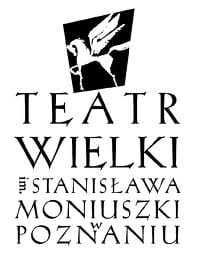 On January 29, the Poznań Opera presented the world premiere of Hadrian Filip Tabęcki’s Dzień Świra [Day of the Wacko], based on a movie script by Marek Koterski. This work inaugurated the cycle of premieres known officially as the “Year of Men,” celebrated on the venerable stage of Poznań’s Teatr Wielki. The seven personalities of the lead character are performed by seven different actors; thus, the composer’s task was to delineate musically the variety of characters and their particular neuroses, reflecting multiple personalities of the hapless hero. This opera, whilst continuing traditions of Polish avant-garde musical dramas, is also a spectacle with a strong social commentary on contemporary society.
On January 29, the Poznań Opera presented the world premiere of Hadrian Filip Tabęcki’s Dzień Świra [Day of the Wacko], based on a movie script by Marek Koterski. This work inaugurated the cycle of premieres known officially as the “Year of Men,” celebrated on the venerable stage of Poznań’s Teatr Wielki. The seven personalities of the lead character are performed by seven different actors; thus, the composer’s task was to delineate musically the variety of characters and their particular neuroses, reflecting multiple personalities of the hapless hero. This opera, whilst continuing traditions of Polish avant-garde musical dramas, is also a spectacle with a strong social commentary on contemporary society.
[Source: polmic.pl, hadrian.pl]
Zieliński Premiere
The latest work by Maciej Zieliński, his Symphony No. 5, had its World Premiere on January 29 at the Lutosławski Studio Concert Hall in Warsaw. This first performance of the large-scale, 40-minute work, was given by the Polish Radio Orchestra under the baton of Łukasz Borowicz.
The Polish Radio Orchestra commissioned the work from the young composer, who is currently serving as the Orchestra’s Composer in Residence for this season. The commissioning of Zieliński’s Fifth was made possible with the financial support from the Institute of Music and Dance that underwrites collaborative efforts between composers and orchestras.
Other items on the program included Zygmunt Noskowski’s rarely perfomed Fantazja góralska [The Highlanders’ Fantasy] and Mieczysław Karłowicz’s Violin Concerto, Op. 8, with soloist Bartłomiej Nizioł.
[Source: polmic.pl]
Warsaw Village Band Performs Premiere
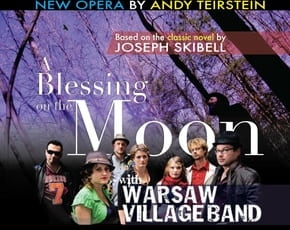 The Chutzpah! 2012 Festival in Vancouver, BC opens with an extraordinary event on February 11: the world premiere of a musical, A Blessing on the Moon – The Colour of Poison Berries, with music by Andy Teirstein, libretto by Andy Teirstein and Joseph Skibell and featuring the Warsaw Village Band. The premiere will be previewed at the (le) poisson rouge theater on February 6.
The Chutzpah! 2012 Festival in Vancouver, BC opens with an extraordinary event on February 11: the world premiere of a musical, A Blessing on the Moon – The Colour of Poison Berries, with music by Andy Teirstein, libretto by Andy Teirstein and Joseph Skibell and featuring the Warsaw Village Band. The premiere will be previewed at the (le) poisson rouge theater on February 6.
This new music-theatre experience combines imaginative and physical theatricality with a fiery, folk-infused score that brings Joseph Skibell’s daring and original story, A Blessing on the Moon, to life. Andy Teirstein’s composition joins with the glorious timbres and galloping percussion of the Warsaw Village Band and a cast of five accomplished singer/actors under the spell of Jim Calder’s direction.
A Blessing on the Moon; The Colour of Poison Berries is the surreal and magical tale of Chaim Skibelski. It follows Chaim’s wandering search for an afterlife following his violent death at the hands of a German soldier in wartime Poland. On his travels, he is sometimes accompanied by his Rabbi who is now a crow. This mystical story is a haunting evocation of the Polish Holocaust and a journey towards peace and wisdom. The music, which ranges from Polish folk/roots to cabaret, adds nuance to every line spoken—and combines with movement to beautifully explore the edges of magic realism contained in the words of this epic narrative.
Andy Teirstein’s work is inspired by a rich and diverse range of folk and roots music, and is described by The New York Times and Village Voice as “magical,” “ingenious,” and “superbly crafted.” The six-member Warsaw Village Band is considered among the most important and accomplished musical ambassadors of European culture today. Their modern brand of traditional folk music has garnered BBC Radio Awards and a Grammy nomination, among a raft of other accolades. Joseph Skibell’s 1997 debut novel A Blessing on the Moon was named one of the year’s best by Publisher’s Weekly, Le Monde and Amazon.com. He has received awards from the American Academy of Arts and Letters and the National Endowment for the Arts, as well as the Sami Rohr Award in Jewish Literature. His work has been translated into many languages, most recently Ido and Chinese.
February 6, 2012 | 6:30 p.m.
Preview: A Blessing on the Moon – The Colour of Poison Berries
(le) poisson rouge – 158 Bleecker Street, New York, NY
Info: 212.505.FISH | info@lprnyc.com
Admission: Free for members
February 11, 2012 – February 13, 2012 | various times
World Premiere: A Blessing on the Moon – The Colour of Poison Berries
Chutzpah! 2012 Festival – Norman & Annette Rothstein Theatre
950 West 41st Ave, Vancouver BC V5Z 2N7
Info: chutzpahfestival.com, normanrothsteintheatre.com or 604.257.5111
Admission: Adults $26 | JCC Members/Seniors $22 | Students $16 at ticketstonight.ticketforce.com
[Sources: polishculture-nyc.org, http://chutzpahfestival.com/performances-tickets/music/#M1]
Polish Composers In Sikorski Magazine
 Sikorski Music Publishers [Sikorski Musikverlage] has devoted the latest issue of its Sikorski Magazine—entitled “Poland‘s Moderns” [Polens Moderne] (No. 1/2012)—to the exploration of three modern Polish composers: Witold Lutosławski, Henryk Mikołaj Górecki, and Krzysztof Meyer. These three were chosen not only for their leading role in contemporary Polish music, but also because the year 2013 brings several important birthday anniversaries for each of them: Lutosławski’s 100th, Górecki’s 80th, and Meyer’s 70th. The issue also discusses the recent re-discovery of the music of Mieczysław Weinberg.
Sikorski Music Publishers [Sikorski Musikverlage] has devoted the latest issue of its Sikorski Magazine—entitled “Poland‘s Moderns” [Polens Moderne] (No. 1/2012)—to the exploration of three modern Polish composers: Witold Lutosławski, Henryk Mikołaj Górecki, and Krzysztof Meyer. These three were chosen not only for their leading role in contemporary Polish music, but also because the year 2013 brings several important birthday anniversaries for each of them: Lutosławski’s 100th, Górecki’s 80th, and Meyer’s 70th. The issue also discusses the recent re-discovery of the music of Mieczysław Weinberg.
Editors Dagmar Sikorski and Dr. Axel Sikorski begin the issue with the following introduction:
The proximity to both Russia and Germany has influenced the Polish musical scene in a special way. It is rather a coincidence that the most important composers of our neighbouring country are almost all celebrating major jubilees in 2013. Whilst introducing their most important works, we shall tell of the influences and difficulties to which they were subjected.
Other interesting subjects included in the latest issue are “Generations of Contemporary German Composers” represented by Jörn Arnecke, Johannes Harneit, Wolfgang von Schweinitz and Peter Ruzicka; “The Operas of Alfred Schnittke”; Sergei Prokofiev’s opera War and Peace at the Cologne Opera; and the one-act opera Rothschild’s Violin by Benjamin Fleischmann that was completed by Dmitri Shostakovich after Fleischmann was killed in WWII.
The entire issue, written in German with English translations at the back, can be downloaded in PDF form at media.sikorski.de.
[Sources: pwm.com.pl, sikorski.de]
ISCM Music Days In Wrocław – Call For Scores
The ISCM World Music Days 2014 and the 2014 General Assembly of the International Society for Contemporary Music [ISCM] will take place in Wrocław, Poland from October 3-12, 2014. In preparation for this prestigious event, the hosts—ISCM Polish Section – Polish Society for Contemporary Music—have put out a Call for Scores with a deadline of June 30, 2012.
[Sources: iscm.org, worldmusicdays2014.pl]
Wrocław Philharmonic Orchestra Tour
The North American tour of the Wrocław Philharmonic Orchestra begins February 8 in Florida and continues through February 26 in Arizona. The tour will be conducted by the Wrocław Philharmonic’s Artistic Director, Jacek Kaspszyk, and will feature a program that includes Dvorák’s Symphony No. 7. For nearly all of the tour dates, the orchestra will be joined by renowned pianist and winner of the 1970 Chopin Competition, Garrick Ohlsson, except for February 15-17, when they will feature cello soloist Maciej Młodawski.
Feb 8-9: Kravis Center – Dreyfoos Hall, West Palm Beach, FL
Feb 10: Arsht Center, Miami, FL
Feb 11: Indian River Symphonic Association – Community Church of Vero Beach, Vero Beach, FL
Feb 12: University of Florida – Phillips Center, Gainesville, FL
Feb 13: Florida State University Tallahassee, FL
Feb 15: Panama City Concert Association – Marina Civic Center, Panama City, FL
Feb 16: UGA Performing Arts Center, University of Georgia at Athens, GA
Feb 17: Peace Center for Performing Arts, Greenville, SC
Feb 19: North Central College – Wentz Concert Hall, Naperville, IL
Feb 21: Gallagher-Bluedorn Performing Arts Center Cedar Falls, IA
Feb 23: California State University – Valley Performing Arts Center (Great Hall), Northridge, CA
Feb 24: Cerritos Center, Cerritos, CA
Feb 25: Scottsdale Center – Piper Theater, Scottsdale, AZ
Feb 26: UA Presents – Centennial Hall – University of Arizona, Tucson AZ
[Sources: polishculture-nyc.org, opus3artists.com]
Smolij With Sinfonia Iuventus
 On February 2, the Polish Sinfonia Iuventus Orchestra will perform a concert of works by Feliks Ignacy Dobrzyński with conductor Mariusz Smolij. The concert will take place in the Witold Lutosławski Concert Studio of Polish Radio in Warsaw. The program will include Dobrzyński’s Symphony No. 1 in B-flat major, op. 11 and Symphony No. 2 in C minor “Charakterystyczna” , op. 15.
On February 2, the Polish Sinfonia Iuventus Orchestra will perform a concert of works by Feliks Ignacy Dobrzyński with conductor Mariusz Smolij. The concert will take place in the Witold Lutosławski Concert Studio of Polish Radio in Warsaw. The program will include Dobrzyński’s Symphony No. 1 in B-flat major, op. 11 and Symphony No. 2 in C minor “Charakterystyczna” , op. 15.
 Sinfonia Iuventus is an orchestra created out of the most talented graduates of all music schools in Poland. The goal is to give each musician the opportunity to make his or her artistic debut, and to ensure continuing professional education with outstanding artistic experts
Sinfonia Iuventus is an orchestra created out of the most talented graduates of all music schools in Poland. The goal is to give each musician the opportunity to make his or her artistic debut, and to ensure continuing professional education with outstanding artistic experts
February 2, 2012 | 7:00 p.m.
Sinfonia Iuventus performs Dobrzyński
Polish Radio Witold Lutosławski Concert Studio
ul. Modzelewskiego 59, Warsaw
Tickets: www.ebilet.pl
[Source: polmic.pl]
Mazowsze On Strike
According to the external service of Polish Radio:
Members of Poland’s leading folk song and dance ensemble, Mazowsze, have staged a picket in front of the Warsaw Town Hall in a pay and conditions protests.
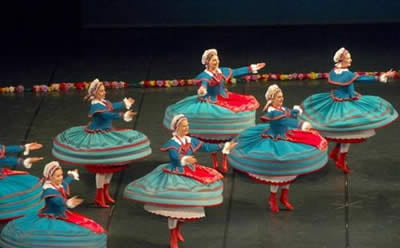 The dancers and musicians played the recordings of their best-known hits, carried banners reading “Mr Minister of Culture, our beloved Mazowsze is dying” and distributed leaflets to passers-by with a resume of their financial situation.
The dancers and musicians played the recordings of their best-known hits, carried banners reading “Mr Minister of Culture, our beloved Mazowsze is dying” and distributed leaflets to passers-by with a resume of their financial situation.
The basic salary of a Mazowsze member with a twenty-years work experience is 2, 000 zlotys (an equivalent of 450 euro).
The Mazowsze entered into a collective pay dispute with the Mazovian Province council in July 2011, after a 15 per cent cut in subsidies. Last Thursday members of the ensemble began a strike action at its home base in Karolin near Warsaw.
[Source: thenews.pl]
New Artistic Director For NOSPR
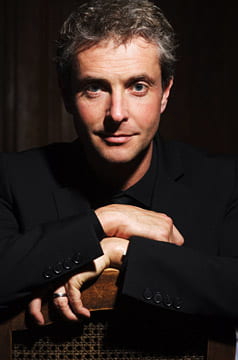 As of September 1, 2012, German conductor Alexander Liebreich will become the new Artistic Director and Principal Conductor of the National Polish Radio Symphony Orchestra [NOSPR] in Katowice. Liebreich has been hailed by the press as “Munich’s most exciting conductor” and a “pioneer in a new generation of conductors,” for whom the borderline between large symphony orchestras and smaller, more flexible ensembles comes just as naturally as the synthesis of artistic mastery and social responsibility. He will assume a four year contract with NOSPR, an ensemble he has worked with many times in the past.
As of September 1, 2012, German conductor Alexander Liebreich will become the new Artistic Director and Principal Conductor of the National Polish Radio Symphony Orchestra [NOSPR] in Katowice. Liebreich has been hailed by the press as “Munich’s most exciting conductor” and a “pioneer in a new generation of conductors,” for whom the borderline between large symphony orchestras and smaller, more flexible ensembles comes just as naturally as the synthesis of artistic mastery and social responsibility. He will assume a four year contract with NOSPR, an ensemble he has worked with many times in the past.
[Sources: thenews.pl, karstenwitt.com]
New from PWM
 MISTRZOWIE I PRZYJACIELE
MISTRZOWIE I PRZYJACIELE
by Krzysztof Meyer
ISBN 978-83-224-0937-4
Polish Music Publishers [PWM]
A new book by Krzysztof Meyer, entitled Mistrzowie i przyjaciele [Masters and Friends], was recently published by PWM. One of the leading Polish composers today, Meyer is also a pianist and pedagogue who has deep connections with the city of Kraków and its musical circles. He is also a prolific author of books, including an excellent biography of Witold Lutosławski, also published by PWM.
In his latest book, Meyer sketches portraits of persons who influenced his life as a musician. They include his teachers, friends, and acquaintances. Such a direct and somewhat informal approach allows Meyer to depict a great variety of fascinating characters by using short and incisive strokes of his pen. They include well-known musicians like Eugenia Umińska or Stanisław Wiechowicz, and lesser-known ones like his piano teacher, Ms. Ekier, and other Kraków musicians. Meyer’s reminiscences are written with great deal of warmth and charm, showing his circle of teachers and friends with all their personality quirks, which makes them alive and vivid for the reader.
The book is available on the PWM website and at PWM bookstores.
[Source: pwm.com.pl]
Kwarta
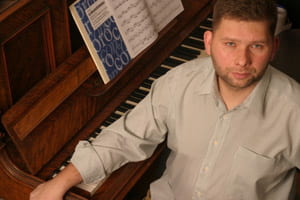 Paweł Łukaszewski is featured on the cover of the latest issue [No. 2(17) from December 2011] of Kwarta Magazine—the Polish-language quarterly music publication of PWM. Łukaszewski is currently composer-in-residence for Warsaw National Philharmonic Orchestra and was featured as the 2011 Paderewski Lecturer at USC last October. The magazine also contains articles about latest books published by PWM including a title about Prof. Mieczysław Tomaszewski, a long-time Editor-in-Chief at PWM who recently celebrated his 90th birthday.
Paweł Łukaszewski is featured on the cover of the latest issue [No. 2(17) from December 2011] of Kwarta Magazine—the Polish-language quarterly music publication of PWM. Łukaszewski is currently composer-in-residence for Warsaw National Philharmonic Orchestra and was featured as the 2011 Paderewski Lecturer at USC last October. The magazine also contains articles about latest books published by PWM including a title about Prof. Mieczysław Tomaszewski, a long-time Editor-in-Chief at PWM who recently celebrated his 90th birthday.
Full issues of Kwarta, as well as the English-language version Quarta, are available at issuu.com
[Source: pwm.com.pl]
PWM Encyclopedia – Complete!
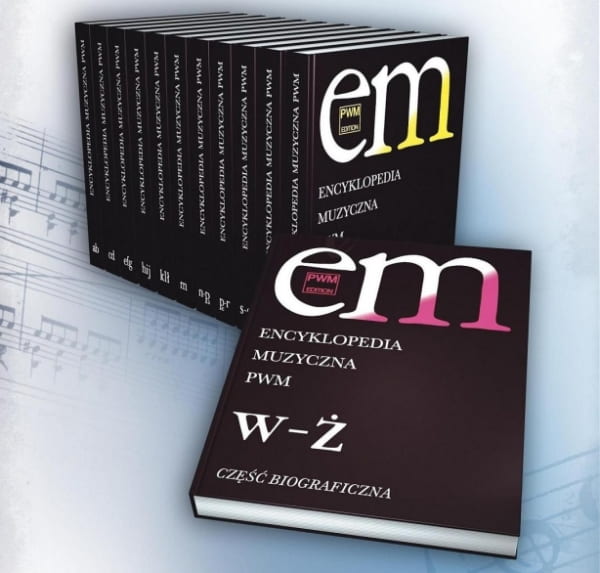 The 12th and last volume of the PWM Music Encyclopedia—containing almost 10 thousand entries, more than 400 authors, and five 200 illustrations in its complete set—will go on sale on February 12. Edited by Elżbieta Dziębowska, it is the long-awaited completion of a series that began to appear in print over three decades ago. The last volume comes in a hardcover edition and contains entries from the letter W to Ż.
The 12th and last volume of the PWM Music Encyclopedia—containing almost 10 thousand entries, more than 400 authors, and five 200 illustrations in its complete set—will go on sale on February 12. Edited by Elżbieta Dziębowska, it is the long-awaited completion of a series that began to appear in print over three decades ago. The last volume comes in a hardcover edition and contains entries from the letter W to Ż.
The final volume or the complete set can be purchased on the PWM website and at PWM bookstores.
[Source: pwm.com.pl]
Musicians’ Home Open House
With construction of the Polish Senior Musicians’ Home largely completed, the Foundation running the project has invited the public to open houses on February 4 and 11. The Home—designed to resemble a historic Polish manor—is located in the village of Kąty near Góra Kalwaria. It has 29 rooms capable of accommodating up to 50 seniors as well as recreation rooms, a clubroom and a library that will also serve as a musical salon and a venue for concerts.
Loneliness is often cited as one of the great problems of aging musicians. Such a home will not only provide its residents with a place to live comfortably but also enable them to continue their professional activities to the extent possible. Workshops and lectures for the local population will be provided by those residing in the Musicians’ Home, as well as concerts and other cultural events.
[Source: polmic.pl]
Monsieur Chopin Returns to l.A. & Discount!
 World-renowned performer Hershey Felder returns to The Pasadena Playhouse for a limited engagement from February 28 – April 7, 2012, and the Playhouse is offering a special discount for PMC patrons and affiliates: 10% off of any (or all three) of the upcoming Hershey Felder productions, using code HEB10 when ordering.
World-renowned performer Hershey Felder returns to The Pasadena Playhouse for a limited engagement from February 28 – April 7, 2012, and the Playhouse is offering a special discount for PMC patrons and affiliates: 10% off of any (or all three) of the upcoming Hershey Felder productions, using code HEB10 when ordering.
Two of Felder’s “Composer Collection” hit shows: MONSIEUR CHOPIN (Feb. 28 – March 7) and MAESTRO: LEONARD BERNSTEIN (March 10 – 18) will make their Playhouse debuts, followed by the World Premiere of LINCOLN – AN AMERICAN STORY. All three productions will star Hershey Felder and are directed by long-time collaborator Joel Zwick.
With MONSIEUR CHOPIN, audiences are invited to a private piano lesson that actually took place in the opulent Parisian salon of the Polish composer. In MAESTRO: LEONARD BERNSTEIN, Felder unfolds a story spanning the entire 20th century illustrating how Bernstein broke through every artistic ceiling possible to become the world’s musical ambassador. And in his newest production, LINCOLN – AN AMERICAN STORY, the final night in Abraham Lincoln’s life is told through the eyes of Dr. Charles Leale, the young medical student who was in attendance on the evening of that fateful performance at Ford’s Theatre in Washington, D.C., and found himself at the center of American history as he unfolds his story of tending to Lincoln in his final hours. LINCOLN – AN AMERICAN STORY will be performed in front of a 45-piece symphony orchestra for this special engagement.
[Source: email offer]
Karkowski @ LA’s Redcat
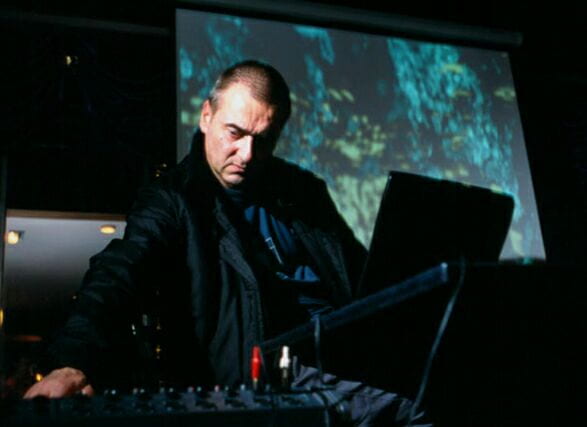 The CalArts Center for Experiments in Art, Information and Technology (CEAIT) two-day festival begins on February 10 at REDCAT in downtown Los Angeles, with an eclectic lineup of sound artists that cross and blend genres. Co-curated by Mark Trayle and Ulrich Krieger, both faculty members of The Herb Alpert School of Music at CalArts, the festival promises to bring music from “abstract reveries to flat-out sonic raucousness” to the listening audience.
The CalArts Center for Experiments in Art, Information and Technology (CEAIT) two-day festival begins on February 10 at REDCAT in downtown Los Angeles, with an eclectic lineup of sound artists that cross and blend genres. Co-curated by Mark Trayle and Ulrich Krieger, both faculty members of The Herb Alpert School of Music at CalArts, the festival promises to bring music from “abstract reveries to flat-out sonic raucousness” to the listening audience.
During this year’s edition, vintage electronics share a stage with the newest sonic technology when acclaimed Dutch composer Thomas Ankersmit highlights at CEAIT. Friday is “Noise Night” featuring L.A.’s own Damion Romero and the pairing of noise pioneers Zbigniew Karkowski and Xopher Davidson. “Ambient Night” on Saturday features the debut of a new work by Ankersmit created expressly for the historic Serge analogue modular synthesizer, originally developed by Serge Tcherepnin at CalArts in the 1970s. Ankersmit, known for abstract, intensely focused electroacoustic work using hyper-kinetic synth and computer improvisation, kicks off a program that also features work by zerfall_gebiete, the duo of electronic ambient soundscape veterans Thomas Köner and Ulrich Krieger.
Noise Night: Friday, February 10, 2012 | 8:30PM
Ambient Night: Saturday, February 11, 2012 – 8:30PM
CEAIT Festival
Roy and Edna Disney/CalArts Theater REDCAT@ Walt Disney Concert Hall
631 W. Second Street, Los Angeles CA
Tickets: $20/$18/$16 @ REDCAT box office or 213-237-2800
[Source: sundayslive.org, redcat.org, blog.calarts.edu; Photo: independent.pl]
Szymanowski Qtet In Beverly Hills
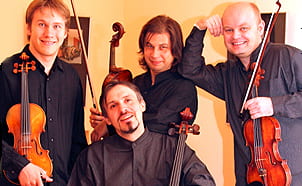 Curated by Eric Wilson, the Chamber Music Series at the Ace Gallery in Beverly Hills presents some of the world’s best chamber music ensembles to small audiences in an intimate and beautiful setting. On Saturday, February 18, Ace Gallery will present the Warsaw-based Szymanowski Quartet: Andrej Bielow and Grzegorz Kotów – violins, Vladimir Mykytka – viola, and Marcin Sieniawski – cello.
Curated by Eric Wilson, the Chamber Music Series at the Ace Gallery in Beverly Hills presents some of the world’s best chamber music ensembles to small audiences in an intimate and beautiful setting. On Saturday, February 18, Ace Gallery will present the Warsaw-based Szymanowski Quartet: Andrej Bielow and Grzegorz Kotów – violins, Vladimir Mykytka – viola, and Marcin Sieniawski – cello.
Founded in Warsaw in 1995, the Szymanowski Quartet has developed into one of the most exceptional international string quartets of its generation. Their sophisticated programs present a perfect balance between intellect and passion, characteristics with which the Szymanowski Quartet captivates its audiences at prestigious festivals and concert halls in Europe, the United States, Asia, Australia and South America.The Quartet’s extraordinarily high standard has been confirmed by numerous awards and distinctions.
Saturday, February 18, 2012 |
8:00pm – 10:00pm
Szymanowski Quartet @ Ace Gallery
9430 Wilshire Blvd.,
Beverly Hills, CA 90212
Tickets: $60 – extremely limited! Contact 323.935.4411 for availability and purchase
[Source: sundayslive.org, acegallery.net, szymanowski-quartet.com]
New Ballet To Lutosławski’s Music
 The world premiere of the ballet Chapters, choreographed by Krzysztof Pastor to the music of Lutosławski’s Fourth Symphony, will be given on February 15, 2012 in Amsterdam’s Het Muziektheater. The Dutch National Ballet [Het Nationale Ballet] will perform the work during Present/s 1, the first 2-day section of its festival of new works celebrating fifty years of its artistic activities. Chapters will be performed on four further occasions (February 18, 22, and 25 as well as March 2).
The world premiere of the ballet Chapters, choreographed by Krzysztof Pastor to the music of Lutosławski’s Fourth Symphony, will be given on February 15, 2012 in Amsterdam’s Het Muziektheater. The Dutch National Ballet [Het Nationale Ballet] will perform the work during Present/s 1, the first 2-day section of its festival of new works celebrating fifty years of its artistic activities. Chapters will be performed on four further occasions (February 18, 22, and 25 as well as March 2).
Keso Dekker, a noted costume designer, and light designer Bert Dalhuysen will collaborate with Mr. Pastor in staging the premiere. Lutosławski’s music will be performed by the Holland Symfonia led by Matthew Rowe.
Krzysztof Pastor has already adapted Lutosławski’s music to ballet in the past, collaborating with Het Nationale Ballet on a ballet Visions at Dusk in 2007, which utilized Lutosławski’s scores of Dance Preludes, Five Folksongs, and his Little Suite.
[Source: polmic.pl]
Zdunik Plays Penderecki
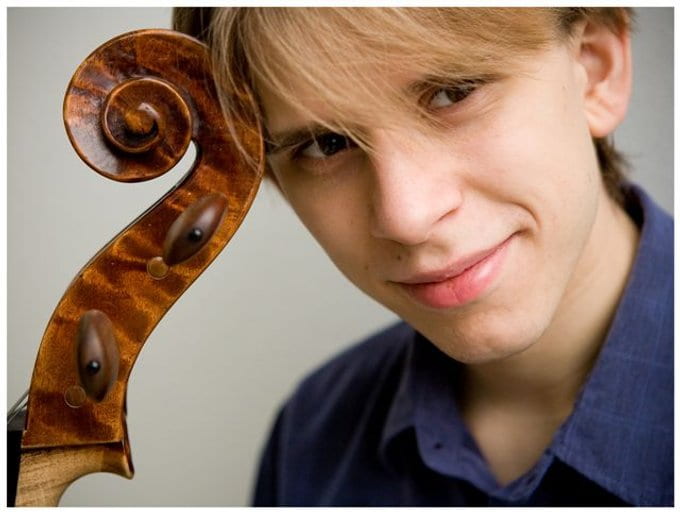 Winner of the 2010 “Phonographic Debut of the Year” Fryderyk Award, cellist Marcin Zdunik will perform Krzysztof Penderecki’s Second Cello Concerto with the Kraków Philharmonic on February 17 and 18. The concert, led by maestro Mario Kosik will also feature works by Ján Cikker and Antonin Dvořak. Mr. Zdunik will then travel to Bratislava where, between February 23 and March 2, he is scheduled to record Penderecki’s and Elgar’s cello concertos with the Slovak Radio Symphony Orchestra under the baton of Artistic Director Mr. Kosik.
Winner of the 2010 “Phonographic Debut of the Year” Fryderyk Award, cellist Marcin Zdunik will perform Krzysztof Penderecki’s Second Cello Concerto with the Kraków Philharmonic on February 17 and 18. The concert, led by maestro Mario Kosik will also feature works by Ján Cikker and Antonin Dvořak. Mr. Zdunik will then travel to Bratislava where, between February 23 and March 2, he is scheduled to record Penderecki’s and Elgar’s cello concertos with the Slovak Radio Symphony Orchestra under the baton of Artistic Director Mr. Kosik.
[Source: polmic.pl]
Baczewska on Madison Ave.
 On Sunday, February 12, Magdalena Baczewska will perform at the Madison Avenue Presbyterian Church in New York City. The program will include: William Byrd: Pavane and The Earle of Salisbury; Jean-Philippe Rameau: Excerpts from Pièces de Clavecin (1724); Domenico Scarlatti: Sonata in D minor, L. 413 and Sonata in D major, L. 14; Franz Liszt: Ave Verum, S. 44 (arr. Mozart), Ave Maria, S. 182, Ave Maria, S. 183/2 (arr. Arcadelt), Alleluia, S. 183/1; Frédéric Chopin: Nocturne in D-flat, Op. 27, No. 2, Three Mazurkas (Op. 59, No. 1 & 2; Op. 67, No. 2), and Ballade No. 3 in A-flat major, Op. 47.
On Sunday, February 12, Magdalena Baczewska will perform at the Madison Avenue Presbyterian Church in New York City. The program will include: William Byrd: Pavane and The Earle of Salisbury; Jean-Philippe Rameau: Excerpts from Pièces de Clavecin (1724); Domenico Scarlatti: Sonata in D minor, L. 413 and Sonata in D major, L. 14; Franz Liszt: Ave Verum, S. 44 (arr. Mozart), Ave Maria, S. 182, Ave Maria, S. 183/2 (arr. Arcadelt), Alleluia, S. 183/1; Frédéric Chopin: Nocturne in D-flat, Op. 27, No. 2, Three Mazurkas (Op. 59, No. 1 & 2; Op. 67, No. 2), and Ballade No. 3 in A-flat major, Op. 47.
Sunday, February 12, 2012 | 3:00pm – 4:30pm
Music on Madison: Magdalena Baczewska, piano
Madison Avenue Presbyterian Church
Admission (suggested donation): $15 ($10 – Students/Seniors); Children 12 & under: free!
[Sources: polishculture-nyc.org, mapc.com]
Project Grechuta In Concert
The Plateau Ensemble and their guests will make a two-week tour of the US and Canada, promoting their fourth album, Project Grechuta. Their concerts will continue a highly successful tour of over 40 concerts across Poland last fall. During their North American tour the ensemble will visit Toronto, Chicago, New York and also stop in Florida. Guest artists include Małgorzata Ostrowska, Marek Jackowski, Adam Nowak, and Piotr Cugowski.
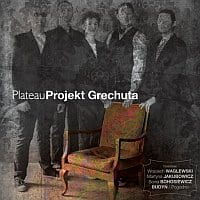 They will perform new arrangements of songs by the legendary Marek Grechuta. The CD album Projekt Grechuta was published in March of 2011 to excellent reviews and was a top-selling album for several weeks. Marek Grechuta’s widow, Danuta, is the honorary patron of the concert tour and the CD recording.
They will perform new arrangements of songs by the legendary Marek Grechuta. The CD album Projekt Grechuta was published in March of 2011 to excellent reviews and was a top-selling album for several weeks. Marek Grechuta’s widow, Danuta, is the honorary patron of the concert tour and the CD recording.
[Source: rmfclassic.pl]
Awards
Młoda Polska Winners
Winners of the 2012 “Młoda Polska” stipends, awarded by the Polish Ministry of Culture and National Heritage, were announced on February 7. This program is open to artists under 35 years of age, active in music, film, photography, visual arts, theatre, dance, and art criticism. Given on a competitive basis, the stipend is meant to enable the winners to make considerable progress in their career. Appropriations may be allocated to specific artistic projects, masterclasses or studies abroad, or the purchase of instruments and equipment necessary for their creative work.
The budget for this 9th edition of the “Młoda Polska” stipend program was 3, 550, 000 zł. (approx. $1.1 million USD). From amongst the 605 candidates in all categories, 82 stipend recipients were chosen—roughly half of the winners (42) were in the Music category, including:
 BMF Piano Trio (Bartłomiej Wezner – piano, Michał Szałach – violin, Filip Syska – cello) – the most successful team at the 2011 St. Martin’s Chamber Music Competition in London – for CD recording
BMF Piano Trio (Bartłomiej Wezner – piano, Michał Szałach – violin, Filip Syska – cello) – the most successful team at the 2011 St. Martin’s Chamber Music Competition in London – for CD recording
 Composer Ewa Fabiańska – winner of the 2011 Tadeusz Ochlewski Competition for Composers – for mini-studio composition equipment
Composer Ewa Fabiańska – winner of the 2011 Tadeusz Ochlewski Competition for Composers – for mini-studio composition equipment
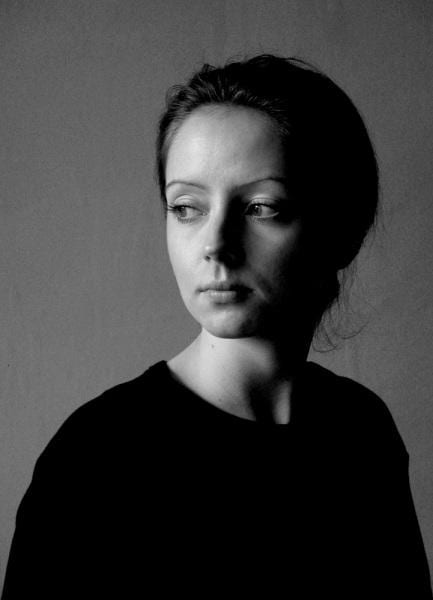 Composer Justyna Kowalska-Lasoń – one of the founding donors to the PMC’s New Voices Collection – for studio composition equipment
Composer Justyna Kowalska-Lasoń – one of the founding donors to the PMC’s New Voices Collection – for studio composition equipment
For a full listing of all 2012 recipients, visit www.mkidn.gov.pl.
[Sources: mkidn.gov.pl, pwm.com.pl, polskamuza.eu]
Diamond Baton For Strugała
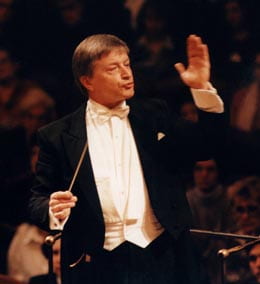 In December 2011, the Polish Radio Board of Directors honored Maestro Tadeusz Strugała with the Diamond Baton Award, in recognition of his outstanding service in promotion of Polish music and culture around the world. Strugała’s career and his role in the musical life of Poland as one of Poland’s leading conductors was also cited, as was his long-standing association with Polish Radio. The award ceremony was followed by a December 18 concert performed by the Polish Radio Orchestra with soloist Aleksandra Kuls in Brahms’s Violin Concerto, Op. 77. Beethoven’s Fourth Symphony, Op. 60 completed the program, which was led by the laureate and broadcast by Polish Radio 2 throughout Poland.
In December 2011, the Polish Radio Board of Directors honored Maestro Tadeusz Strugała with the Diamond Baton Award, in recognition of his outstanding service in promotion of Polish music and culture around the world. Strugała’s career and his role in the musical life of Poland as one of Poland’s leading conductors was also cited, as was his long-standing association with Polish Radio. The award ceremony was followed by a December 18 concert performed by the Polish Radio Orchestra with soloist Aleksandra Kuls in Brahms’s Violin Concerto, Op. 77. Beethoven’s Fourth Symphony, Op. 60 completed the program, which was led by the laureate and broadcast by Polish Radio 2 throughout Poland.
[Source: polskamuza.eu, polskieradio.pl]
Daroch Is Audience Favorite In Croatia
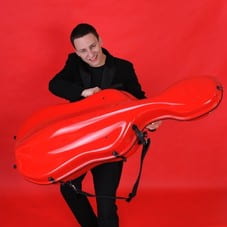 On February 5, 2012, the official results of the Fifth International Antonio Janigro Cello Competition in Zagreb, Croatia were announced. Tomasz Daroch, the only Pole in the finals of the competition, won Third Prize as well as the Audience Award, the Award of the Janigro Family, the Zagreb Soloists Award and the Varaždin Chamber Orchestra Award.
On February 5, 2012, the official results of the Fifth International Antonio Janigro Cello Competition in Zagreb, Croatia were announced. Tomasz Daroch, the only Pole in the finals of the competition, won Third Prize as well as the Audience Award, the Award of the Janigro Family, the Zagreb Soloists Award and the Varaždin Chamber Orchestra Award.
[Sources: polmic.pl; Photo credit: Andrzej Heldwein via tomaszdaroch.com]
Festivals
Zubel @ Icebreaker In Seattle
The festival’s other great discovery was Zubel […]
Her voice—a vibrant, voluptuous, precise soprano—is a marvel.
– Georgia Rowe, MusicalAmerica.com, on Zubel’s performance at the Other Minds festival in 2011
 Award-winning composer and vocalist Agata Zubel will perform as a featured artist in Seattle at the Icebreaker Festival, where she will present works by Luciano Berio (Italy), Georges Aperghis (Greece) and Luís Tinoco (Portugal). This year’s edition, Icebreaker VI, is celebrating new music from the Mediterranean. Seattle Chamber Players, the organizers of the festival, have taken on the ambitious goal of breaking the ice in many ways: between the West and East; between Europe, Asia and Africa; between academic concert music and both folk and traditional musics; between the diverse and inspirational cultures within the Mediterranean region; and between the region’s deep and ancient history and its colorful present.
Award-winning composer and vocalist Agata Zubel will perform as a featured artist in Seattle at the Icebreaker Festival, where she will present works by Luciano Berio (Italy), Georges Aperghis (Greece) and Luís Tinoco (Portugal). This year’s edition, Icebreaker VI, is celebrating new music from the Mediterranean. Seattle Chamber Players, the organizers of the festival, have taken on the ambitious goal of breaking the ice in many ways: between the West and East; between Europe, Asia and Africa; between academic concert music and both folk and traditional musics; between the diverse and inspirational cultures within the Mediterranean region; and between the region’s deep and ancient history and its colorful present.
 The ensemble is comprised of Paul Taub – flute, David Sabee – cello, Laura DeLuca – clarinet, and Mikhail Shmidt – violin, and Joining them are local musicians and special international soloists from Poland, Israel and Algeria. Over two days, they will play works by composers from 13 countries of the Mediterranean region, including Nabil Benabdeljalil (Morocco), Benet Casablancas (Spain), Salim Dada (Algeria), Sanja Drakulic (Croatia), Mohammed Fairouz (Egypt/Lebanon), Yann Robin (France), Uroa Rojko (Slovenia), Luis Tinoco (Portugal), Yitzhak Yedid (Israel). Many of the composers will be present for the performances.
The ensemble is comprised of Paul Taub – flute, David Sabee – cello, Laura DeLuca – clarinet, and Mikhail Shmidt – violin, and Joining them are local musicians and special international soloists from Poland, Israel and Algeria. Over two days, they will play works by composers from 13 countries of the Mediterranean region, including Nabil Benabdeljalil (Morocco), Benet Casablancas (Spain), Salim Dada (Algeria), Sanja Drakulic (Croatia), Mohammed Fairouz (Egypt/Lebanon), Yann Robin (France), Uroa Rojko (Slovenia), Luis Tinoco (Portugal), Yitzhak Yedid (Israel). Many of the composers will be present for the performances.
Zubel’s participation is in part supported by the Polish Cultural Foundation, NY.
Concerts: Saturday, Feb. 25, 2012 | 8pm & Sunday, Feb, 26, 2012 | 7pm
Illsley Ball Nordstrom Recital Hall – Benaroya Hall, Seattle
Tickets: $25 general/$15 students and seniors, 206.215.4747
Meet the Composers: Saturday, Feb. 25, 2012 | 3pm & Sunday, Feb. 26, 2012 | 1pm
Soundbridge Music Discovery Center – Benaroya Hall, Seattle
Free admission
For details about the Icebreaker Festival concerts and the performers, visit www.seattlechamberplayers.org.
[Sources: polishculture-nyc.org, pwm.com.pl, seattlechamberplayers.org]
Stars Are Promoted
The 2012 National Festival “Gwiazdy Promują” [Stars Promote] will be held from February 10-17 in the Lower Silesian Philharmonic in Jelenia Gora. This Festival is an annual event that permanently in the Jelenia Góra Philharmonic concert calendar. Now in its nineteenth year, the Festival promotes talented musicians from across Poland to hone their skills under the guidance of masters, and concert audiences have the opportunity to see the effects of this transfer of skills and esoteric knowledge.
The Festival will open with a concert entitled “The Master and his successors,” featuring violinists Marcin Baranowski, Andrew Gębskiego, Stanislaw Podemskiego, and Anna Orlik, with the Lower Silesian Philharmonic under the baton of Mark Pijarowski. The program will include Romuald Twardowski – Spanish Fantasy for Violin and Orchestra, Barbara Kaszuba – Remembrance of Janusz Korczak for solo violin, Niccolo Paganini – Violin Concerto in D major, Op. 6, and Piotr Tchaikovsky – Violin Concerto in D major, Op. 35.
[Sources: polmic.pl, filharmonia.jgora.pl]
Lutosławski Łańcuch IX
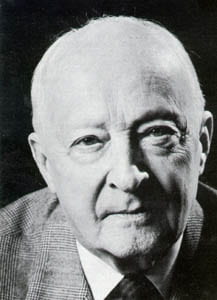 This year’s Łańcuch Festival began on the 99th anniversary of Lutosławski’s birth, January 25, and ran through February 4. Four evenings of music were held at the Royal Castle and the Lutosławski Studio in Warsaw. There was a concert dedicated to the memory of Stefan Jarociński, a close friend of Lutosławski, and a concert of works by Andrzej Krzanowski, one of Lutosławski’s younger colleagues who died twenty years ago. The Festival opened with a concert featuring Norwegian singer Solveig Kringelborn, whose career began with the world premiere of Lutosławski’s Chantefleurs et chantefables in 1991. The closing concert also featured works by Henri Dutilleux and Magnus Lindberg in performance by the Polish National Radio Symphony Orchestra [NOSPR] under the baton of French conductor Pierre-André Valade. Other artists invited to participate in this year’s festival included Klaudiusz Baran – accordion, Zdzisław Piernik – tuba, Bartosz Koziak – cello and Agnieszka Kozło – piano, Grzegorz Krawiec – guitar, the Janusz Prusinowski Trio and the OPiUM Quartet. As in previous years, Bogdan Zdrojewski, Minister of Culture and National Heritage was the honorary patron of this year’s concerts.
This year’s Łańcuch Festival began on the 99th anniversary of Lutosławski’s birth, January 25, and ran through February 4. Four evenings of music were held at the Royal Castle and the Lutosławski Studio in Warsaw. There was a concert dedicated to the memory of Stefan Jarociński, a close friend of Lutosławski, and a concert of works by Andrzej Krzanowski, one of Lutosławski’s younger colleagues who died twenty years ago. The Festival opened with a concert featuring Norwegian singer Solveig Kringelborn, whose career began with the world premiere of Lutosławski’s Chantefleurs et chantefables in 1991. The closing concert also featured works by Henri Dutilleux and Magnus Lindberg in performance by the Polish National Radio Symphony Orchestra [NOSPR] under the baton of French conductor Pierre-André Valade. Other artists invited to participate in this year’s festival included Klaudiusz Baran – accordion, Zdzisław Piernik – tuba, Bartosz Koziak – cello and Agnieszka Kozło – piano, Grzegorz Krawiec – guitar, the Janusz Prusinowski Trio and the OPiUM Quartet. As in previous years, Bogdan Zdrojewski, Minister of Culture and National Heritage was the honorary patron of this year’s concerts.
[Source: lutoslawski.org.pl]
Discography
Blechacz Plays Szymanowski
 Rafał Blechacz – Debussy · Szymanowski
Rafał Blechacz – Debussy · Szymanowski
Claude Debussy (1862 – 1918): Pour le piano and Estampes; Karol Szymanowski (1882 – 1937): Prelude and Fugue in C-sharp minor, Sonata No. 1 in C minor, op.8, and Fugue
Rafał Blechacz, piano
Deutsche Grammophon 477 9548
The newest album from the 2005 Chopin Competition winner, Rafał Blechacz, celebrates the musical confluences between Karol Szymanowski and Claude Debussy. Below is an excerpt from an article about the recording by Jürgen Otten, entitled “The Triumph of Sensibility” from the Deutsche Grammophon website:
[…]
The young Polish pianist is not really interested in the ongoing musicological debate as to whether Debussy’s works are Impressionistic or not. For Rafał Blechacz, Debussy is unquestionably an Impressionist, but an Impressionist who has borrowed his structural virtues from Classicism and developed them a stage further. In short, Debussy was a composer who was fully aware of all that Mozart, Beethoven and Chopin had achieved but was able to translate all of this into the language of musical modernism. That is why Rafał Blechacz is able to describe Debussy as the king of colours.
If we stick to this image, it may not be presumptuous of us to describe Karol Szymanowski as the king of existential poetry. With the single exception of his compatriot Chopin, Szymanowski was unique in his ability to speak straight to the heart with his music. That was what he wanted. And there is no doubt that listeners are right to describe him as an Expressionist. Szymanowski’s musical language is filled with emotion, intuition and inspiration and with wit, voluptuousness and yearning. These were the qualities that struck Rafał Blechacz when, still little more than a child, he first heard Szymanowski’s music while at a recital by Jerzy Godziszewki, a teacher at the Bydgoszcz Academy where Blechacz was later to study. Godziszewski played several pieces by Szymanowski, among them Metopes and Masks, emotionally charged works full of sensual sonorities and remotely reminiscent of the mysticism of a composer like Scriabin but entirely distinctive in tone. The young Rafał Blechacz was fired up by a very real desire to enter this world, which he did by the circuitous route of the Variations op. 3.
Blechacz feels a tremendous affinity for Szymanowski, especially for a colossal work like the early C minor Sonata, which could be described as a continuation of Beethoven’s ideal of a free sonata form culminating in a fugue but using Expressionist means. The resultant work is a powerhouse of feelings not least because its monumental structure is combined with a range of sonorities extending from Classicism to Scriabin.
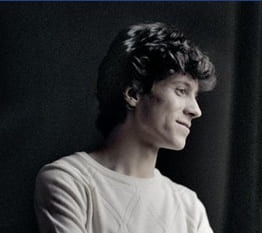 Rafał Blechacz performs this music with a nobility and authority that are almost disturbing when we recall how young he is. But at the same time the listener can sense the degree to which his extensive work on Bach and the Viennese Classical composers has influenced his sense of form and sonority. Apparently contradictory elements come together here: youthful impetuosity and the greatest poetical sensitivity. One might think there could be no greater contradiction, but this is only superficially the case, for, as physics teaches, opposites attract – especially when they are combined with such enormous reserves of energy.
Rafał Blechacz performs this music with a nobility and authority that are almost disturbing when we recall how young he is. But at the same time the listener can sense the degree to which his extensive work on Bach and the Viennese Classical composers has influenced his sense of form and sonority. Apparently contradictory elements come together here: youthful impetuosity and the greatest poetical sensitivity. One might think there could be no greater contradiction, but this is only superficially the case, for, as physics teaches, opposites attract – especially when they are combined with such enormous reserves of energy.
[Sources: polmic.pl, deutschegrammophon.com]
Lutosławski On Chandos
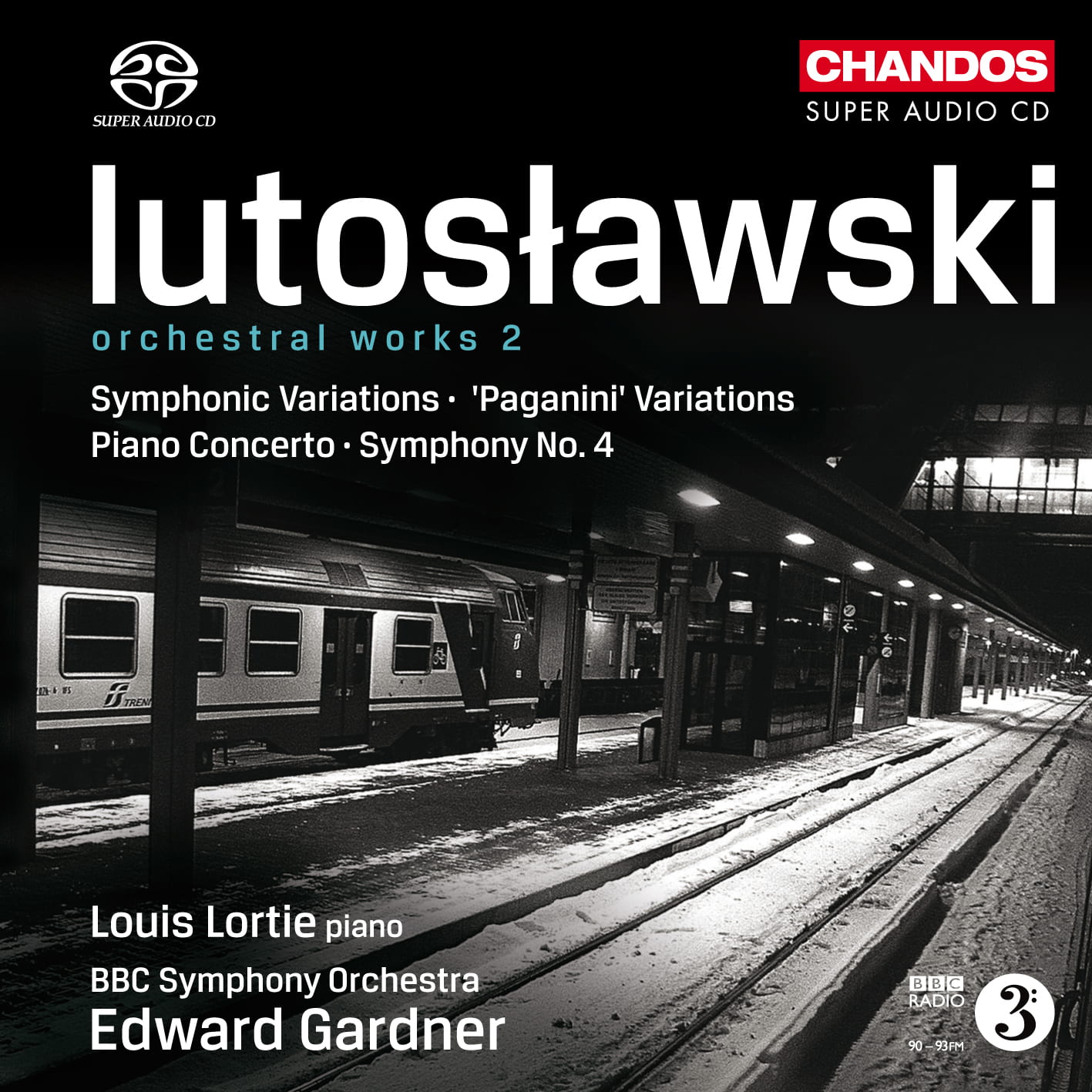 Lutosławski: Orchestral Works 2
Lutosławski: Orchestral Works 2
Witold Lutosławski (1913-1994): Wariacje symfoniczne [Symphonic Variations], Symphony No. 4, Piano Concerto, and Wariacje na temat Paganiniego [Variations on a Theme of Paganini]
Louis Lortie – piano; BBC Symphony Orchestra; Edward Gardner – cond.
CHAN 5098
Edward Gardner and the BBC Symphony Orchestra continue to record Lutosławski’s music for the Chandos label. The first CD in the cycle came out in September 2010, featuring orchestral works: Symphony No. 3, Łańcuch III and the Concerto for Orchestra (CHAN 5082). In August 2011 the second CD was issued, containing the vocal works Tryptyk Śląski, Lacrimosa, Paroles tissées, Les espaces du sommeil, Spijze, spij, and Chantefleurs et Chantefables (CHAN 10688). Volume II has been reviewed in this month’s American Record Guide.
This most recent recording was issued in December 2011 and features a second round of symphonic explorations in collaboration with piano soloist Louis Lortie. More information on the recording, including the commentary by Polish contemporary music scholar Adrian Thomas, can be found on the Chandos website: www.chandos.net
[Sources: lutoslawski.org.pl, chandos.net]
Penderecki On Naxos Series
 Krzysztof Penderecki: Viola Concerto | Cello Concerto No. 2
Krzysztof Penderecki: Viola Concerto | Cello Concerto No. 2
Tatjana Vassiljeva, cello; Grigori Zhislin, violin; Warsaw National Philharmonic; Antoni Wit, cond.
Naxos 8.572211
From the Naxos website:
Penderecki’s concertos are amongst the most communicative, emotionally charged, and important works of the second half of the twentieth century. The Second Cello Concerto was written for Rostropovich and its exploration of Romantic intensity reflected a change in Penderecki’s musical language. Its rich harmonies and dramatic power ensure unflagging interest. Opening with an expressive soliloquy for the soloist, the brooding and complex Viola Concerto incorporates a broad range of techniques from the composer’s maturity into a taut and compact time-span. Grigori Zhislin has long been associated with this work, whilst Antoni Wit is one of the composer’s greatest champions, whose ‘authoritative insight’ (American Record Guide) has been acknowledged in the Symphony No. 3 and Threnody on Naxos 8.554491.
From a review by Byzantion on MusicWeb International, January 2012:
This is a compelling addition to the already impressive series of Naxos CDs devoted to the music of one of Europe’s most important living composers…. Guided by the expert but still underrated Antoni Wit, the excellent Warsaw Philharmonic give surely award-winning accounts of these demanding scores. The Russian soloists are majestic too: intuitive, expressive and virtuosic.
[Sources: americanrecordguide.com, naxos.com]
Wieniawski & Charlie Siem
 Charlie Siem: Bruch, Wieniawski, Ole Bull
Charlie Siem: Bruch, Wieniawski, Ole Bull
Henryk Wieniawski: Violin Concerto No. 1; Anton Bruch: Violin Concerto No.1; Ole Bull: Cantabile Doloroso e Rondo Giocoso
London Symphony Orchestra; Andrew Gourlay, cond.
Charlie Siem, violin;
Warner Classics 66661
From a review by Jonathan Woolf on MusicWeb International (Dec. 2011):
Wieniawski’s youthful First Concerto has never really staked much of a claim on the concert stage. It has made some headway on disc, though certainly not spectacular headway. Gil Shaham has recorded it for DG, but before him Perlman, with Ozawa, on EMI and – less well known but excellent – Vadim Brodsky and Antoni Wit on Arts Music have left important recordings. Before them however this was Michael Rabin’s concerto. There’s his studio disc with von Matacic and there’s a live one with Alfred Wallenstein in Los Angeles on Tahra – considerably hacked about editorially, and in poor sound, but brilliantly played. Siem is not an especially fiery player, and his take is precise and accurate, warm in the slow movement – where it does sound as if Bruch had listened and learned from the older man – and crisp in the finale. It’s an avuncular, slightly measured performance all round.
[Sources: americanrecordguide.com,]
Fialkowska Plays Liszt
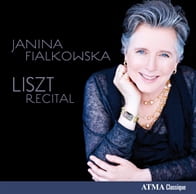 Liszt Recital
Liszt Recital
Franz Liszt: Soirées de Vienne (Valse-caprice No. 6), Bénédiction de Dieu dans la solitude, Gretchen (2nd movement of the Faust symphony transcribed by Liszt for piano); Chopin-Liszt: Six Chants polonaise; Gounod/Liszt: Waltzes from the opera Faust
Janina Fialkowska, piano
ATMA ACD2641
In 2009-2010, Polish-Canadian pianist Janina Fialkowska marked the end of her successful battle with cancer and her return to performing with the release of three Chopin albums on the Atma Classique label: Chopin Recital (ACD22597), Chopin – Piano Concertos (ACD22643), and Chopin – Etudes, Sonatas & Impromptus (ACD22554). For one hailed by Arthur Rubinstein as a “born Chopin interpreter” such as Fialkowska, such a voluble celebration of the Chopin Year might seem like enough recording for quite some time. However, as she announced in a 2010 interview with Rebecca Franks for BBC Music Magazine, she was just as excited about the Liszt year in 2011, and celebrated that occasion with a recording of works by Liszt as well as his transcriptions of other composers such as Chopin and Gounod. According to Bryce Morrison of Gramophone (Jan 2012), “we need many more records from this master-pianist!” For more reviews, visit www.janinafialkowska.com.
CD Reviews
By Gary Fitelberg
 Ewelina Nowicka: Musik fur Violine und Klavier
Ewelina Nowicka: Musik fur Violine und Klavier
Ewelina Nowicka – violin; Pola Lazar, Milena Antoniewcz, Jennifer Hymer, Katharina Polivaeva and Michał Krezlewski – piano
Kruezberg Records KR 10107
As if Ewelina Nowicka is not already a superbly talented violinist she can also compose with equal merit. In 2011, she released her debut CD of seven of her own compositions for violin and piano.
The first one is called Obsession for Violin & Piano. It is in three movements: I. Praefatio, II. Misterio, III. Finale. Ms. Nowicka plays the violin while Pola Lazar plays piano. Written in 1999, this was Nowicka’s first composition for orchestra violin, xylophone and chamber orchestra. Later, during 2010, it was transcribed for violin and piano. the composer’s interests and rythmic aspects are conveyed particularly well in this piece and became a seed for later compositional developments which have blossomed into quite a repertoire of beautiful music.
The second is a violin solo called Atonall. This wonderful piece was inspired by Schumann’s Kinderszenen [Scenes from Childhood]. As it evolves, it contains both old and new violin playing techniques, requiring great virtuosity from the soloist.
The next two works are based upon Jewish motifs and themes. Both are illustrious examples of the influence of Jewish music on classical music.
Kaddish 1944 for Violin and Piano is an evocative piece played by Ms. Nowicka and her piano partner Milena Antoniewcz who frequently play concerts together internationally. A letter from Nowicka’s aunt served as the inspiration for this piece. The letter describes her aunt’s life in the Łódź ghetto and goes on to describe her journey on a cattle train to Auschwitz. It was during this journey where she became separated from her mother on the ramp. The melody appears at the very beginning of the piece and can be likened to a fragile and delicate small plant. The melody then goes through many developments rather than flourish, but gets a chance to do so at the end. This is how the impressions, influences, and musical structure are linked together.
Concerto Ebraico for Violin and Piano has three movements: I. Sabbat, II. Katharsis, III. Purim. The Sabbath, which on the Jewish calendar falls on Saturday, is the most Holy Day and supercedes all others including the High Holy Days of Rosh Hashanah and Yom Kippur. Purim is an ancient celebration when the Jews overcame extermination by the King of Persia with the help of Queen Esther. This time Ewelina is joined by the praiseworthy pianist Jennifer Hymer. Concerto Ebraico, Nowicka’s second violin concerto, received an award in 2008 from the Bremen Composers Competition in Germany. Many musical elements come together in this piece. It contains an energetic, lively dialogue between the piano and violin, and reminds the listener of late Romantic and folk elements from the early 20th century. Furthermore, it combines technical savvy with emotional depth, thereby engaging the audience right from the beginning until the very end.
Conventus for piano solo is played beautifully by pianist Katharina Polivaeva. One can imagine the similarity to creating a very beautiful sculpture. The listener could and should imagine flying through the air, as a musical space is created by carving out a low, middle, and high register on a piano. This imagery is achieved through techniques such as clusters and faint minimalistic characteristics. Natural and spatial elements are further emphasized by sustaining tones through the pedals. This emotional, expressive, powerful work is full of imagination.
Saltatio mortis for violin and piano attracts the talents of yet another fine pianist, Michał Krezlewski. This composition was originally written for violin, harpsichord, and chamber orchestra. This recording features the violin and piano transcription. This danse macabre is distinctive because of its atonal elements and especially for its ostinato pattern.
Strawinskana is a solo for violin quite obviously dedicated to the famous composer Igor Stravinsky. The composer quotes 20th century music and reveals how she was influenced by Stravinsky, a master of rhythm. There is a very clear reference to Stravinsky’s violin concerto within the first two measures. Nowicka uses this as a point of departure in order to create her own ideas leading to an expressive, rhythmically-structured composition.
Assessing a young composer or classifying them within a specific musical genre is no easy task. Eras such as the Baroque, Classical, or Romantic periods, although well-defined, belong to the past and not the present. Young composers are developing their own unique styles. They may express themselves in various ways within a single work and their pieces are often described as eclectic.
Listening to this recording, one thing becomes crystal clear regarding Ewelina Nowicka and her musical pieces: we are dealing with both a virtuoso violinist as well as a virtuoso composer. Nowicka and her piano partners bring these pieces to life with passionate performances. Nowicka engages the listener by enchanting them and inviting them into her personal life – arousing their emotions evocatively. Her music is frequently inspired by her own family history, which has a rich heritage closely tied to Jewish culture, and also the characteristics of experimental contemporary music, which can be found in just about all her works.
Ewelina Nowicka is a musician who clearly plays and composes from her heart. She is passionate about both composition and violin. Whether as a composer or on the violin with Ewelina Nowicka you are sure to win!
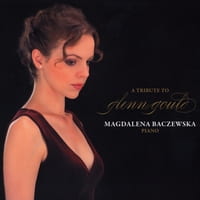 A Tribute to Glenn Gould
A Tribute to Glenn Gould
Bach: Goldberg Variations in G major, BWV 988, No. 1-32; Strauss: Piano Sonata in B minor, Op. 5
Magdelena Baczewska – piano
Holophon 884501092111 (2008)
Regarding her debut album, pianist Magdalena Baczewska states it best for her reason for a special tribute to Glenn Gould:
Dear listeners,
To be honest, I don’t know where to start discussing Bach, Strauss, or Gould. It would be unfair to try to contain these three giants of music history on one page or reduce their achievements and gifts to a small summation. The recording you are about to hear represents “book ends” of Glenn Gould’s output as a recording artist. His illustrious recording career began with now legendary performance of Bach’s Goldberg Variations in 1955. The Strauss Sonata was the final work recorded before Gould’s untimely death in 1982. In my tribute this extraordinary musician and thinker, I take the liberty of juxtaposing the sublime Variations with a juvenile work of eighteen-year-old Richard Strauss (who called himself “first-class second-rate composer”). Between Bach (the God-fearing court composer and a father of twenty), Strauss (the future creator of highly troubling Salome), and Gould (who preferred pills over food and didn’t give up his hat or gloves in the hottest summer months), there is plenty food for thought.
It was Glenn Gould’s recordings with which I grew up in my home, constantly filled with music and musicians. The recordings of Gould were the impetus for my own musical journey and intense studies. The love and inspiration for the work on this project came from my beloved parents, wonderful sisters, caring friends, and marvelous teachers. I thank them sincerely, as I thank you for spending the hour with some of the most beautiful music ever written.
Magdalena (from CDbaby.com)
Polish pianist Magdalena Baczewska holds a Doctor of Musical Arts degree from Manhattan School of Music, having written a dissertation “In search of Bach’s Cantibile: The Role and Aspects of Oratory and Singing in Keyboard Interpretation.” As a winner of international piano competitions, she has appeared as a soloist with several orchestras. Her performances have been broadcast on WQXR, NPR, Voice of America, and on European radio and television.
Ms. Baczewska has served on the faculty of Montclair State University in New Jersey as well as the International Keyboard Institute and Festival in NYC. She is also a published music critic (New York Concert Review). Ms. Baczewska has commissioned works for piano and has given several world premieres. Her main focus lies in the early keyboard literature, which she performs both on the harpsichord and the piano.
American Record Guide calls Polish-born Magdalena Baczewska “clearly a rising star” and describes her recent recording of the Goldberg Variations as “World-class Bach…imaginative playing, always rhythmically alive.” Combining profound musicianship, passion for educating and a gift of public speaking, Baczewska is increasingly known for her innovative recital programming ideas and making her audiences think. “Baczewska enlightens…” wrote Greg Stepanich in the Palm Beach Arts Paper after her 2009 Miami appearance. She was described as “imaginative and instructive, a player of taste, purity of tone, and clarity of line.” The same author further noted her “admirable sensitivity, impressive technique and ability to muster plenty of interpretive fire…”
Magdalena treats each performance not as a mere showcase of her talent but a gift of knowledge and perspective. Considering herself a musical sommelier, she finds inventive pairings of repertoire and sheds new light on her audiences’ favorite music. In 2001, she has started playing the harpsichord and exploring a wide range of early (pre-Baroque) keyboard repertoire, which she performs both on the piano and the harpsichord. Her repertoire also includes works of livings composers, with several commissions and world premieres. Her recordings and performances, hailed as “eloquent and technically flawless” (The Washington Post).
In May 2011, Magdalena received an Outstanding Achievement Award from the Polish Minister of Culture, Mr. Bogdan Zdrojewski.
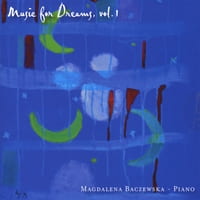
 Music for Dreams, Vol. 1 & Vol. 2
Music for Dreams, Vol. 1 & Vol. 2
Works by Bach, Beethoven, Brahms, Chopin, Debussy, Satie, Schumann,
Magdelena Baczewska – piano
Produced By BlueSleep, available on CDBaby
Inspired by Bach’s Goldberg Variations which were commissioned by Count Keyserlingk – an insomniac – Ms. Baczewska focuses her second release on relaxing her listener. “Music for Dreams” is a 2 volume set conceived in collaboration with BlueSleep, a medical team specialized in research and treatment of sleep disorders. The albums are a blend of music and medicine to sooth the soul. Baczewska charms the listener with a rare beauty, with rest and relaxation as the ultimate goal. The soft and soothing sounds are intended to help regulate breathing and heart rate, and induce a healthy and regenerating sleep.
Gary Fitelberg is a Polish-American author, biographer, historian, music critic and historian specializing in the Fitelberg family musicians, Young Poland (Młoda Polska), Polish –Jewish musicians, and exiled and forgotten musicians.
Performances
Górecki: Polish Spirituals
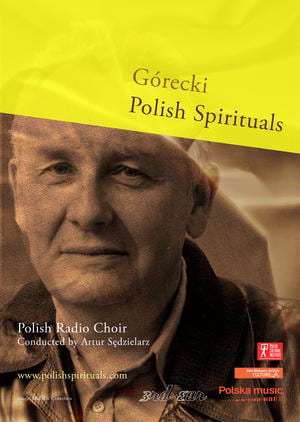 From November 5-8, 2011, the Polish Radio Choir gave a landmark tour of the UK presenting a program entitled Górecki: Polish Spirituals. Founded in 1948 and based in Kraków, the Polish Radio Choir is one of Poland’s leading choirs and worked extensively on Górecki’s music with the composer during his lifetime. Conducted by Artur Sędzielarz, the group’s Artistic Director since 2010, these concerts were a tribute to one of the late twentieth century’s great composers a year after his death in November 2010.
From November 5-8, 2011, the Polish Radio Choir gave a landmark tour of the UK presenting a program entitled Górecki: Polish Spirituals. Founded in 1948 and based in Kraków, the Polish Radio Choir is one of Poland’s leading choirs and worked extensively on Górecki’s music with the composer during his lifetime. Conducted by Artur Sędzielarz, the group’s Artistic Director since 2010, these concerts were a tribute to one of the late twentieth century’s great composers a year after his death in November 2010.
Tour concerts were held in Durham, London, Bristol and Liverpool. The all-Górecki programs included: Totus Tuus (1987); Five Kurpian Songs (1999); Three Lullabies (1984); Song of the Katyn Families (2004); Come Holy Spirit (1986); and Amen (1975). Concert notes by Adrian Thomas can be seen at www.adrianthomasmusic.com.
The tour was produced by Third Ear—a trio of UK music professionals with extensive experience, expertise and networks across the new music scene—in association with the Adam Mickiewicz Institute, Polska Music, Polish Professionals in London and the Polish Cultural Institute -London.
[Source: polishspirituals.com, polishculture.org.uk]
Borowicz Conducts Chopiniana In Berlin
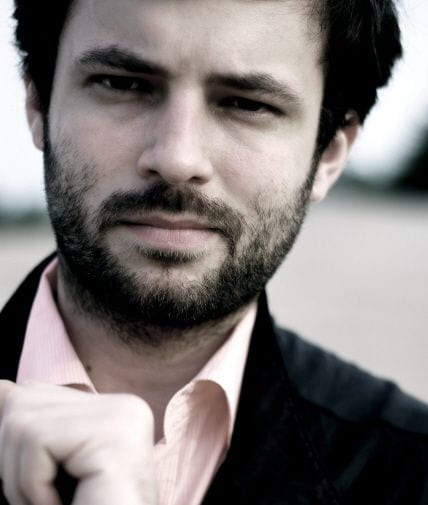 On January 13-15, the Konzerthausorchester Berlin performed a concert entitled “Chopiniana” with the Russian pianist Alexei Volodin and Polish conductor Łukasz Borowicz (left), Artistic Director of Warsaw’s Polish Radio Symphony Orchestra. The program included Chopin – Piano Concerto in F minor, Op. 21, Karłowicz – Eternal Songs, Op. 10, Panufnik – Lullaby for 29 strings and 2 harps, and Glazunov – Chopiniana, Op. 46.
On January 13-15, the Konzerthausorchester Berlin performed a concert entitled “Chopiniana” with the Russian pianist Alexei Volodin and Polish conductor Łukasz Borowicz (left), Artistic Director of Warsaw’s Polish Radio Symphony Orchestra. The program included Chopin – Piano Concerto in F minor, Op. 21, Karłowicz – Eternal Songs, Op. 10, Panufnik – Lullaby for 29 strings and 2 harps, and Glazunov – Chopiniana, Op. 46.
[Sources: boosey.com, artesystem.com, kulturserver-berlin.de]
Ochlewski Mass
The 37th anniversary of Tadeusz Ochlewski’s death was celebrated with a special mass at the Dominican Basilica in Kraków on January 29. Mr. Ochlewski was the founder and long-time director of the Polish Music Publishers [PWM].
[Sources: pwm.com.pl]
Anniversaries
Born This Month
- 2 February 1909 – Grazyna BACEWICZ , composer, violinist, pianist (d. 1969)
- 7 February 1877 – Feliks NOWOWIEJSKI, composer, organist
- 8 February 1953 – Mieszko GÓRSKI, composer, teacher (active in Gdansk and Koszalin)
- 9 February 1954 – Marian GORDIEJUK, composer, teacher, theorist (active in Bydgoszcz)
- 14 February 1882 – Ignacy FRIEDMAN, pianist and composer (d. 1948)
- 18 February 1881 – Zygmunt MOSSOCZY, opera singer (bass), chemist (d. 1962)
- 27 February 1898 – Bronislaw RUTKOWSKI, organist, music critic, conductor and composer (d. 1964)
- 28 February 1910 – Roman MACIEJEWSKI , composer, pianist (d. 1998 in Sweden)
- 28 February 1953 – Marcin BŁAŻEWICZ, composer, teacher (active in Warsaw)
Died This Month
- 3 February 1959 – Stanisław GRUSZCZYŃSKI, tenor (active throughout Europe, b. 1891)
- 3 February 1929 – Antoni Wawrzyniec GRUDZIŃSKI, pianist, teacher, and music critic (active in Lódz and Warsaw, b. 1875)
- 7 February 1954 – Jan Adam MAKLAKIEWICZ, composer (active in Warsaw, b. 1899)
- 7 February 1994 – Witold LUTOSŁAWSKI, composer and conductor (b. 1913)
- 8 February 1909 – Mieczysław KARŁOWICZ, composer, conductor, writer (b. 1876)
- 9 February 1959 – Ignacy NEUMARK, composer and conductor (active in Copenhagen, Oslo and Schveningen, b. 1888)
- 10 February 1905 – Ignacy KRZYŻANOWSKI, pianist and composer (active in Kraków and Warsaw, b. 1826)
- 14 February 1957 – Wawrzyniec Jerzy ŻULAWSKI, composer, music critic, teacher, and mountain climber (b. 1916)
- 15 February 2010 – Adam KACZYŃSKI, pianist, composer and creator of the MW2 new music ensemble (b. 13 October 1933)
- 15 February 2010 – Marek JASIŃSKI, composer and professor in Bydgoszcz (b. 1949)
- 23 February 1957 – Stefan ŚLĄZAK, singer, organist, conductor (active in Silesia, b. 1889)
- 27 February 1831 – Józef KOZLOWSKI, composer (active at the Russian Court in Petersburg, b. 1757)
- 29 February 2004 – Witold RUDZIŃSKI, composer, music critic and teacher
